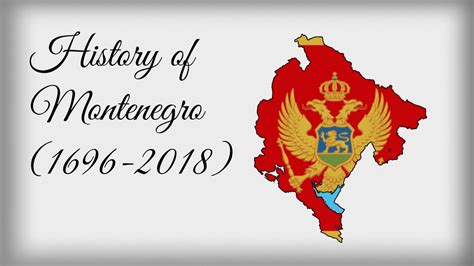Explore the impact of European colonization, struggles for independence, and post-independence challenges and achievements, with key historical figures shaping African history.
Colonization by European powers
Contents
Colonization by European powers had a significant impact on the history of Zimbabwe. The era of colonization began in the late 19th century as European countries, particularly Britain and Germany, sought to expand their empires and exploit the resources of Africa. Zimbabwe, then known as Southern Rhodesia, was invaded and colonized by the British in the 1890s, leading to a period of upheaval and displacement for the indigenous population.
During this time, the indigenous population of Zimbabwe faced numerous challenges, including loss of land, forced labor, and oppression under colonial rule. The imposition of European laws and customs led to the erosion of traditional African societies and cultures, creating a legacy of inequality and division that persists to this day.
The struggle for independence from colonial rule began to take shape in the mid-20th century, as the people of Zimbabwe mobilized against the injustices of colonialism. Key historical figures such as Joshua Nkomo, Robert Mugabe, and Ndabaningi Sithole emerged as leaders of the independence movement, galvanizing support for the cause both within Zimbabwe and on the international stage.
After a prolonged and often violent struggle, Zimbabwe finally achieved independence from Britain in 1980, marking a turning point in the nation’s history. However, the post-independence era brought its own set of challenges and achievements, as Zimbabwe grappled with issues of governance, land reform, and economic development in the aftermath of colonial rule.
Impact on indigenous population
The impact of European colonization on the indigenous population of Zimbabwe was profound and far-reaching. The arrival of European powers in the late 19th century led to significant changes in the social, political, and economic fabric of the region. The indigenous people, who had long lived in harmony with the land, suddenly found themselves at the mercy of foreign invaders.
The introduction of new diseases, such as smallpox and influenza, decimated indigenous communities and drastically reduced their numbers. The loss of life was catastrophic, leading to a significant decline in the indigenous population.
The imposition of colonial rule also resulted in the displacement of indigenous people from their ancestral lands. The fertile soil and valuable resources of Zimbabwe were seized by European settlers, leaving the indigenous population marginalized and impoverished.
Furthermore, the introduction of new economic systems, such as cash cropping and wage labor, disrupted traditional indigenous ways of life. Many indigenous people were forced into exploitative labor arrangements, leading to further social and economic dislocation.
The legacy of European colonization continues to impact the indigenous population of Zimbabwe to this day, as they grapple with the ongoing effects of dispossession, marginalization, and economic inequality.
Struggle for independence
During the 20th century, Zimbabwe went through a long and difficult struggle for independence from British colonial rule. The people of Zimbabwe, led by nationalist movements such as the Zimbabwe African National Union (ZANU) and the Zimbabwe African People’s Union (ZAPU), fought for their right to self-governance and sovereignty. The struggle for independence was marked by intense political activism, widespread protests, and armed resistance against the colonial authorities.
The independence movement in Zimbabwe was spearheaded by key historical figures such as Robert Mugabe, Joshua Nkomo, and Ndabaningi Sithole, who played pivotal roles in galvanizing the population and mobilizing support for the cause. The nationalist leaders worked tirelessly to unite the various ethnic and tribal groups within the country to form a united front against the colonial regime.
As the struggle for independence gained momentum, the colonial authorities responded with harsh repression, including the imprisonment and torture of political activists. However, the resilience and determination of the Zimbabwean people ultimately led to the downfall of colonial rule. In 1980, Zimbabwe finally gained independence, and Robert Mugabe became the country’s first prime minister.
The struggle for independence in Zimbabwe was a monumental chapter in the country’s history, marking the triumph of the human spirit and the collective will of a nation to break free from the shackles of colonialism. The legacy of the independence movement continues to resonate in Zimbabwean society, serving as a reminder of the sacrifices made by the brave men and women who fought for the country’s liberation.
Role of key historical figures
Zimbabwe has a rich history, with many key historical figures playing a significant role in shaping the country’s past and present. Cecil Rhodes, a British businessman and politician, was one of the most influential figures in the colonization of Zimbabwe. He played a crucial role in the establishment of British control over the region, which had a lasting impact on the indigenous population. Joshua Nkomo, a prominent leader in the struggle for independence, was a key historical figure in the fight against colonial rule. His efforts, along with those of other notable figures such as Robert Mugabe and Canan Banana, ultimately led to the end of British colonial rule and the establishment of an independent Zimbabwe.
Following independence, key historical figures such as Morgan Tsvangirai and Emmerson Mnangagwa have played important roles in shaping the country’s political landscape. Tsvangirai, as the leader of the opposition party, challenged the ruling party’s authority and advocated for political reform. Mnangagwa, on the other hand, has been a prominent figure in the ruling party and has had a significant influence on Zimbabwe’s government and policies. These historical figures have had a lasting impact on Zimbabwe’s history and continue to play a crucial role in shaping the country’s future.
It is important to recognize the contributions of these key historical figures in understanding the complex history of Zimbabwe. Their actions and decisions have had a lasting impact on the country and its people, and their legacies continue to shape the nation’s identity and development. By acknowledging the role of these figures, we can gain a better understanding of Zimbabwe’s history and the challenges and achievements that have defined the country’s past and present.
Post-independence challenges and achievements
After gaining independence from British colonial rule in 1980, Zimbabwe faced a number of challenges as it sought to establish itself as a sovereign nation. One of the most pressing issues was the need to rebuild the country’s economy, which had been severely disrupted by years of conflict and economic sanctions. The government implemented a series of policies aimed at addressing this, including land reforms and the nationalization of key industries.
However, these measures were not without controversy, and Zimbabwe soon found itself grappling with a new set of challenges. The land reforms, in particular, sparked a wave of social and political unrest, as they were implemented in a manner that was widely seen as discriminatory and unjust. This led to a breakdown in relations with the international community, and the imposition of further economic sanctions.
Despite these challenges, Zimbabwe has also achieved several notable successes in the post-independence era. The country has made significant progress in areas such as education and healthcare, with a dramatic increase in literacy rates and life expectancy. The government has also implemented a number of programs aimed at promoting economic development and reducing poverty, with some degree of success.
However, the country continues to face ongoing challenges, including high levels of unemployment and political instability. The government has also been criticized for its human rights record, with allegations of corruption and repression. It remains to be seen how Zimbabwe will address these challenges in the years to come, and whether the country will be able to build on its achievements to create a more stable and prosperous future for its people.













